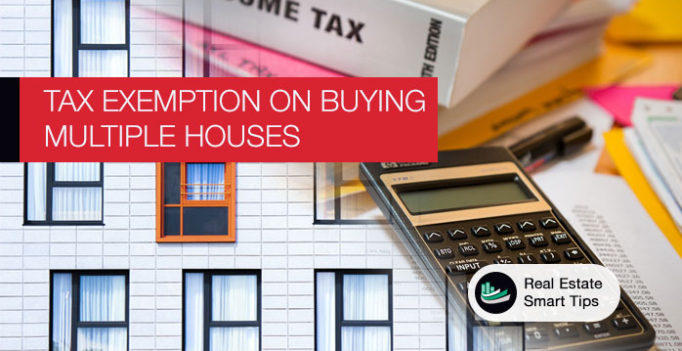Various people all across the globe have a preference for investing in multiple houses. These people are also aware of the tax exemption they get if they invest in multiple properties. Buying multiple houses is a very big deal. However, if you invest in properly in a smart way, you can definitely go ahead and make gains.
Tax Exemption: Why Should You Invest in Multiple Houses?
It is a fact that the rent you receive from multiple properties is way more than the rent you can receive from one single big property. You also get the option of using the smaller versions of properties in other ways. With the recession going on in our economy, people do not have the money to invest in large houses and this is why they are going for investment in multiple houses. Buying multiple houses can be the biggest gain in one’s life.
Now let us talk about the exemption on buying multiple houses. The Indian tax law allows an individual or a HUF to claim exemptions on various long-term capital gains under section 54 of the laws. You can sell a residential property and purchase the other one. One year prior or two years after the date of sale of the house or for constructing the new house within three years from the date of selling the old house. Besides, under section 54F, a person can claim this long-term capital gain exemption arising from the sale of assets.
Thinking About How Many Houses You Can Invest In?
An obvious question that pops up in your mind is if you can invest in more than one residential house or not. The Indian court has said that the residential house does not have to be singular. Various taxpayers were able to claim the exemption even when they had invested in more than one house. However, an amendment was made and now this amendment allows people to claim for exemption only if they have invested in one house.
The exemption 54F of the income tax act gives the exemption on capital gains only under the following situation:
- The taxpayer invests the proceeds from the sale or purchase of a new residential property.
- The new property must be purchased one year before the sale or after the sale of the property. If you are constructing a new property, three years is your time bracket.
- The last one is that the taxpayer should not have more than one residential house when he is transferring or selling the property.
Note: It is also to be noted that there is no bar if you claim a deduction for the second or third time for the same property if the cost of the property is within the capital gain that is arising to the taxpayer.
Tax Exemption: How Can You Act Smart And Get More Exemptions?
- Repaying the home loan for a residential house unit? You can claim deductions up to 1, 50,000 under section 80 C.
- You can also claim a deduction with respect to the interest of other properties. This sort of deduction is available since the day you start purchasing the property. You may claim the interest you pay during the construction period in five equal instalments.
Wrapping up
Now you know about the tax exemption while you’re purchasing multiple properties. Subsequently, follow the sections, and do not get fooled by anyone else. Know the difference between a residential property and a commercial property. Remember that you can claim exemptions more than once on the same property.
If there be no exemption on home loan for purchasing a house, we need to understand the impact on sale of properties.
Please “Like” & “Share” to enlighten others.
Looking to know which type of real estate investment is best for you? Keep exploring


Be the first to comment